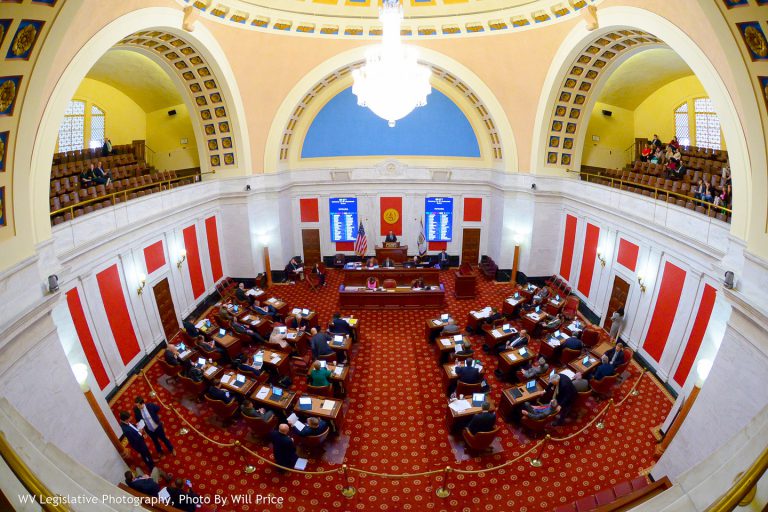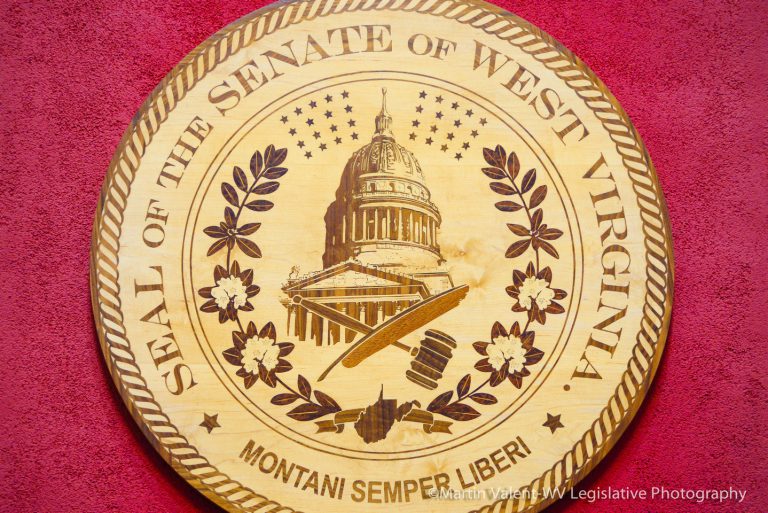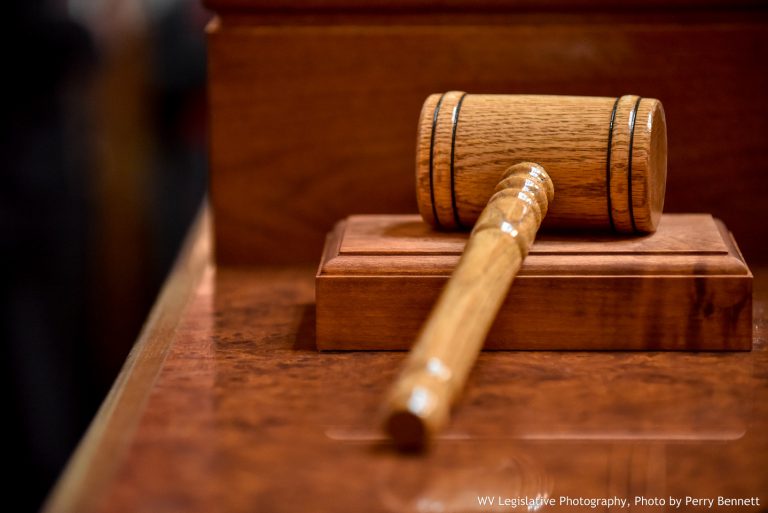As of 6 p.m., Wednesday, February 23, 2011, the 43rd day of the 80th Legislature’s 1st Regular Session, 608 bills have been introduced in the Senate. To date, 15 have completed legislation. Of the bills introduced, 27 passed this week and have been sent to the House for further consideration. Bills passed by the Senate this week include:
Senate Bill 227 would develop a matching grant program to foster the development of creative communities in West Virginia. The bill would provide for the necessary funds to establish the Creative Communities Development Program.
Senate Bill 234 would revise the Municipal Economic Development District Act. It would enlarge the number of municipal corporations that may use sales tax increment financing to provide for any economic development projects.
Senate Bill 235 would revise the County Economic Opportunity Development District Act. This would include the remediation of landfills, former coal or mining sites, solid waste facilities or hazardous waste sites. These sites would be deemed as permissible for development projects under this bill.
Senate Bill 238 would re-designate the Division of Veteran’s Affairs to the Department of Veteran’s Assistance. This bill would provide for the department to be supervised by a cabinet-level secretary.
Senate Bill 243 would change the termination date of the Neighborhood Development Program Act from July 1, 2011 to July 1, 2016. The bill also would provide for an increase of the tax credit given to the program.
Senate Bill 263 would allow non-profit research corporations affiliated with higher education institutions to operate vehicles that have been issued special plates on the road. These corporations must handle research programs dealing with the development of vehicles, special fuels or equipment.
Senate Bill 282 would provide for the continuation of the Highway Design-Build Pilot Program for two more years.
Senate Bill 304 would provide for an alternative means for the initial purchaser of a junked vehicle. It would authorize the initial purchaser to notify the Division of Motor Vehicles of compliance with the National Vehicle Motor Title Information System.
Senate Bill 334 would create a criminal offense for associating with any form of animal fighting ventures. This would include wagering, conducting, financing, managing, supervising, owning or leasing any part of an animal-fighting venture.
Senate Bill 335 would allow certain municipalities to regulate taxis and taxi stands. This bill would give authorization to any Class I or Class II municipalities to regulate taxi services.
Senate Bill 344 would reduce the money required to qualify as a “qualified capital addition to a manufacturing facility” from $50 million to $10 million. The bill would also reduce the total amount of the original cost of the facility.
Senate Bill 357 would add river otters to the list of species that must be checked at an official game check station. A trapper must present any beaver or otter pelt to a game checking station or representative of the Division of Natural Resources within 30 day after the close of legal season.
Senate Bill 358 would authorize electronic registration of wildlife. The electronic registration would be mean submission of all necessary and relevant information must be presented to the Division of Natural Resources, in the manner designated by rules set forth by the director.
Senate Bill 382 would specify activities that grant members of the National Guard of reserve leaves of absence. This bill would provide for additional activities to the list of reasons a member of the National Guard or Armed Forces Reserve shall be permitted this leave of absence.
Senate Bill 390 would create a new crime relating to the invasion of privacy on web-enabled mobile devices. This bill would create a misdemeanor offense for the invasion of a personal, mobile device. This would include: cell phones, text-messaging devices and mobile devices that can access the Internet.
Senate Bill 474 would adopt a limited version of the “Learned Intermediary Doctrine” (LID). The LID shifts the responsibility of providing warning labels on prescription drugs from the manufacturers to the prescribing physician. The bill would be limited to manufacturers not engaged in direct advertising to consumers regarding a particular drug.
 This morning, the Senate concurred with the House of Delegate’s title amendment to Senate Bill 382 and passed the bill. The bill now awaits the governor’s signature.
This morning, the Senate concurred with the House of Delegate’s title amendment to Senate Bill 382 and passed the bill. The bill now awaits the governor’s signature.

 Along with the adoption of this resolution, the Senate also passed six bills and moved one to third reading for the next floor session. Of these six bills, each were sent to the House for further consideration.
Along with the adoption of this resolution, the Senate also passed six bills and moved one to third reading for the next floor session. Of these six bills, each were sent to the House for further consideration. Student’s from the West Virginia School for the Deaf and Blind greeted the House this morning with “Sweet Home West Virginia”–the students’ rendition of the classic Lynyrd Skynyrd song, “Sweet Home Alabama”.
Student’s from the West Virginia School for the Deaf and Blind greeted the House this morning with “Sweet Home West Virginia”–the students’ rendition of the classic Lynyrd Skynyrd song, “Sweet Home Alabama”. 






 The Senate recognized today, Feb. 22, 2011, as West Virginia Home School Day. The Senate adopted
The Senate recognized today, Feb. 22, 2011, as West Virginia Home School Day. The Senate adopted  The Woodrow Wilson Flying Eagles Soccer Team received a citation from the House of Delegates recognizing the teams 2010 State Championship win.
The Woodrow Wilson Flying Eagles Soccer Team received a citation from the House of Delegates recognizing the teams 2010 State Championship win.